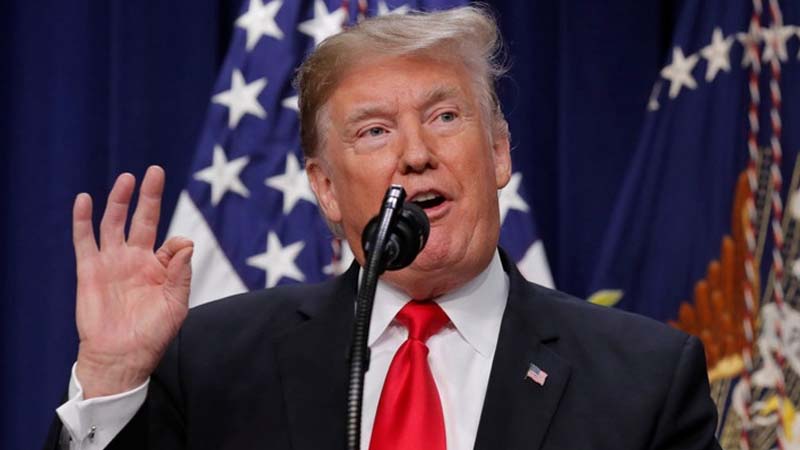Trump Campaign Faces Major Blow as Hacked Documents Reveal Startling Secrets About JD Vance

Photo Credit: Getty Images/ AFP.
The Trump campaign has been hit with a major setback as hacked documents containing startling secrets about JD Vance have come to light. The leaked materials, which include a 271-page vetting report on the Ohio Senator, have sent ripples through the political landscape, potentially jeopardizing Trump’s 2024 presidential bid.
According to a report by Mediaite on Tuesday, August 13, 2024, the breach, which the Trump campaign claims was orchestrated by Iranian operatives, has exposed sensitive internal communications and research documents to at least three major news outlets: Politico, The New York Times, and The Washington Post. While these organizations have chosen not to publish the specifics of the leaked information, the mere existence of the hack has raised serious questions about campaign security and the potential impact on the upcoming election.
The documents, which were sent by an anonymous source identifying themselves only as “Robert,” reportedly contain a wealth of information about Vance, Trump’s recently announced running mate. The vetting report is said to include past statements that could prove embarrassing or damaging to the campaign, including instances where Vance criticized Trump.
Steven Cheung, a spokesperson for the Trump campaign, issued a statement condemning the hack and urging media outlets not to publish the stolen information. “These documents were obtained illegally by foreign actors hostile to the United States, with the aim of interfering in the 2024 election,” Cheung stated. He went on to claim that “any media or news outlet reprinting documents or internal communications are doing the bidding of America’s enemies.”
The timing of the leak is particularly significant, coming shortly after Trump’s selection of Vance as his vice-presidential candidate. This has led to speculation that the hackers may have intended to sow discord within the Republican party and potentially undermine Trump’s choice of running mate.
The FBI has reportedly launched an investigation into the breach, which is believed to have occurred in June. According to sources familiar with the matter, the hack may have involved compromising the personal email account of Roger Stone, a longtime Republican operative and Trump associate.
This incident has drawn comparisons to the 2016 election, when Russian hackers obtained and released emails from Hillary Clinton’s campaign manager, John Podesta. Those leaks, published by WikiLeaks, received extensive media coverage and were widely believed to have influenced the outcome of the election.
However, the response from news organizations this time around has been markedly different. Brad Dayspring, a spokesperson for Politico, explained their decision not to publish details from the leaked documents: “Our editors determined that the questions surrounding the provenance of the documents and how they came to light were more newsworthy stories than the contents of the documents themselves, based on what our reporters knew at the time.”
The Washington Post and The New York Times have taken similar stances, with a Post spokesperson stating, “As with any information we receive, we consider the authenticity of the materials, the motives of the source, and evaluate the public interest when making decisions about what to publish, if anything.”
This cautious approach reflects a shift in journalistic practices since 2016, with news outlets now more wary of potentially being used as tools for foreign interference in U.S. elections. Kathleen Hall Jamieson, a communications professor at the University of Pennsylvania, praised the decision not to publish, saying, “How do you know you’re not being played by the Trump campaign? I would be very cautious in this environment.”
The hack has also reignited discussions about cybersecurity in political campaigns. Thomas Rid, who leads the Alperitch Institute for Cybersecurity Studies at Johns Hopkins University, argued that the apparent attempt by a foreign actor to influence the 2024 presidential election is more newsworthy than the contents of the leaked documents themselves.
Despite the Trump campaign’s claims of Iranian involvement, the U.S. government has not officially attributed the hack to Tehran. Iran has denied any involvement in the incident. The situation is further complicated by a recent Microsoft report highlighting increased influence operations by Iranian actors in recent months.
The leaked documents are said to contain not only information about Vance but also partial vetting reports on other potential vice-presidential candidates, including Senator Marco Rubio of Florida. This suggests that the hackers may have had access to a broader range of sensitive campaign materials.
As the 2024 election approaches, this incident serves as a stark reminder of the ongoing threats to campaign security and the potential for foreign interference in the democratic process. It also highlights the evolving challenges faced by news organizations in balancing public interest with the need to avoid inadvertently spreading disinformation or aiding hostile foreign actors.
Trump, for his part, has attempted to downplay the significance of the hack. In a recent interview with Univision, he described the leaked information as “boring” and “not very important.” However, the fact that his campaign has publicly acknowledged the breach and called for media outlets not to publish the stolen materials suggests a level of concern about their potential impact.
As the FBI investigation continues and more details emerge, the full implications of this hack for the Trump campaign and the broader 2024 election landscape remain to be seen. What is clear, however, is that cybersecurity and the threat of foreign interference will continue to be major issues as the United States heads towards another highly contentious presidential election.





